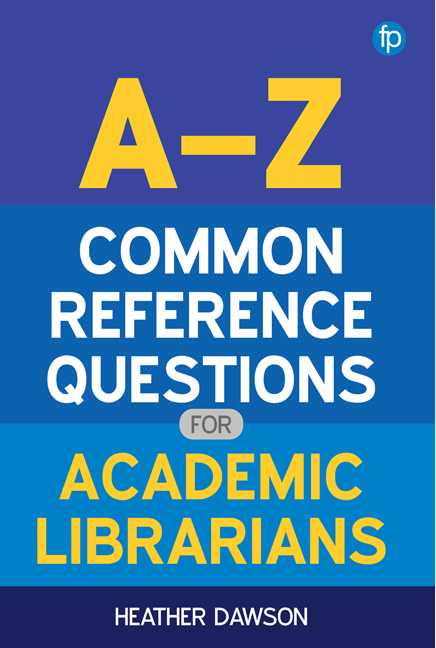Doctoral Students and Early Career Researchers
Published online by Cambridge University Press: 19 March 2020
Summary
Typical questions
• What are the most highly cited journal titles in my field?
• How can I keep up to date with the latest research?
Starting points
• Universities are increasingly recognising the specific needs of PhD students and early career researchers and many have specialist support units which offer courses and advice.
• Doctoral students often require advice on Literature Searching, tracing Theses and Publishing articles.
• Early career researchers may already be familiar with the library but need advice on how to use it as a lecturer, i.e. how to request items for courses and how to build and edit reading lists. Other key chapters to refer to are Impact Measurement, Publishing and Current Awareness.
• In addition to any local offices, good starting points are the main professional organisations in the subject field as many have specialist research student groups. Also useful are the resources of the main research councils. The organisations below have basic advice.
Recommended resources
UK Research and Innovation
www.ukri.org
The body that works with the main UK research councils to create an environment where research can flourish. Website includes basic information on funding, research grants and skills development.
Vitae [Basic]
www.vitae.ac.uk
Non-profit organisation associated with the Careers Research and Advisory Centre (CRAC), which offers valuable support, advice and training for UK postgraduate students and early career researchers. Website includes factsheets and resources covering general themes such as time management and research skills. Some additional services are offered to organisational subscribers. These include online modules in researcher development.
- Type
- Chapter
- Information
- Publisher: FacetPrint publication year: 2019



